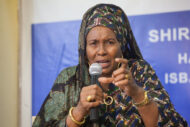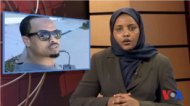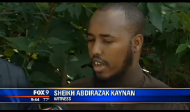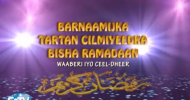The Muslim population in England and Wales has increased by 80 percent since 2001 according to a British government census. With 2.7 million known adherents — 40 percent living in and around London — Islam has emerged as Britain’s second-largest religion after Christianity. Immigration accounts for most of the increase but conversions are on the rise making Islam the UK’s fastest-growing faith. Data from mosques indicates there may be more than 100,000 converts in Britain of various ethnicities. There were 5,000 conversions in 2012 of which three quarters were young females. What’s fueling this trend?
“Make me a Muslim,” a documentary that recently aired on BBC World, begins with “growing numbers of white British women are converting to Islam and asks but why would they want to give up all the freedoms their Western life allows?” It seeks to discover the challenges they face following the precepts of their new faith within a society known for its liberal, freewheeling lifestyle.
The program’s Muslim-born presenter Shanna Bukhari, a successful model and former Miss Universe contestant who announces that she’s a modern British Muslim and always will be, travels around the country interviewing five women converts who ironically inspire Bukhari to reevaluate her own attitudes to Islam. Converts are often more conservative than born Muslims embracing their new beliefs with enthusiastic fervor, so it’s not surprising that Bukhari felt she was being judged for not covering her hair or attending a mosque. When she was obliged to wear a hijab to accompany one the interviewees to a mosque, Bukhari appeared disturbed explaining that she no longer felt “pretty.”
There are numerous reasons why young British women choose Islam. In many cases, it’s because they want to please Muslim fiancés and husbands, to be accepted by Muslim-in laws or to bring up their children in one cohesive faith. However, as the BBC documentary illustrates, others see Islam as a safe haven within a society that denigrates the female form in newspapers and magazines and celebrates a pub/club culture where regular nights out with “mates” getting “sloshed” or popping hallucinogens is more the norm than the exception.
Societal permissiveness, where family life has broken down in the absence of traditional mores, has made demands on young women, valuing them accordance to their physical attributes. Islam offers those women a sense of belonging, a community of like minds in areas where there is a substantial Muslim population. It provides structure to their life, a blueprint for living and a sense of personal security; it gives them renewed dignity and, as they perceive it, increased worth as a human being. There are cases where women have gone through hard times and see their conversion to Islam as a re-birth, a wiping clean of the slate.
Committing to Islam by saying the Shehada for those who are emotionally ready is the simplest part of the process. Most converts have a hard time explaining their decision to family members holding preconceived ideas about Islam as a faith that oppresses womanhood. As the documentary illustrates, parents are sometimes taunted by friends who ask “Does your daughter still wear that thing on her head?” Lifelong friends often fade away because of irreconcilable worldviews or because the convert can no longer join them on the pleasure train.
More often or not, fair-haired, blue-eyed converts not only face insult from passersby on the street but struggle to be taken seriously by Muslim communities. Unmarried converts face difficulties in finding a husband because of the bar on the mixing of sexes in the usual social settings unlike born Muslims who are introduced to prospective partners via family connections or community leaders. Muslim families are sometimes unwilling to allow their sons to wed converts, preferring to find wives within their own ethnic group; others fear converts might one day decide to break away from the religion and revert to their old habits. This means that converts often tie the knot with other converts triggering a mushrooming of Internet sites like muzmatch.com that also organizes events permitting singles who are serious about marriage to meet-up.
Tony Blair’s sister-in-law Lauren Booth, a well-known pro-Palestinian activist, columnist and TV presenter, elicited a storm of controversy when she embraced Islam in 2010.
The “screams of faux horror from fellow columnists on hearing of my conversion to Islam prove that this remains the stereotypical view regarding half a billion women currently practicing Islam,” she wrote. The will to convert was a slow process for Booth. “Almost unnoticed to me, when praying for the last year or so, I had been saying “Dear Allah” instead of “Dear God”… then came the pull, a sort of emotional ebb and flow that responds to the company of other Muslims with a heightened feeling of openness and warmth.” She glimpsed “the great lie” that “consumerism, materialism, drugs and sex will give us great happiness” and finally felt “what Muslims feel when they are in true prayer: A bolt of sweet harmony, a shudder of joy in which I was grateful for everything I have (my children) and secure in the certainty that I need nothing more (along with prayer) to be utterly content.”

 All Posts
All Posts









